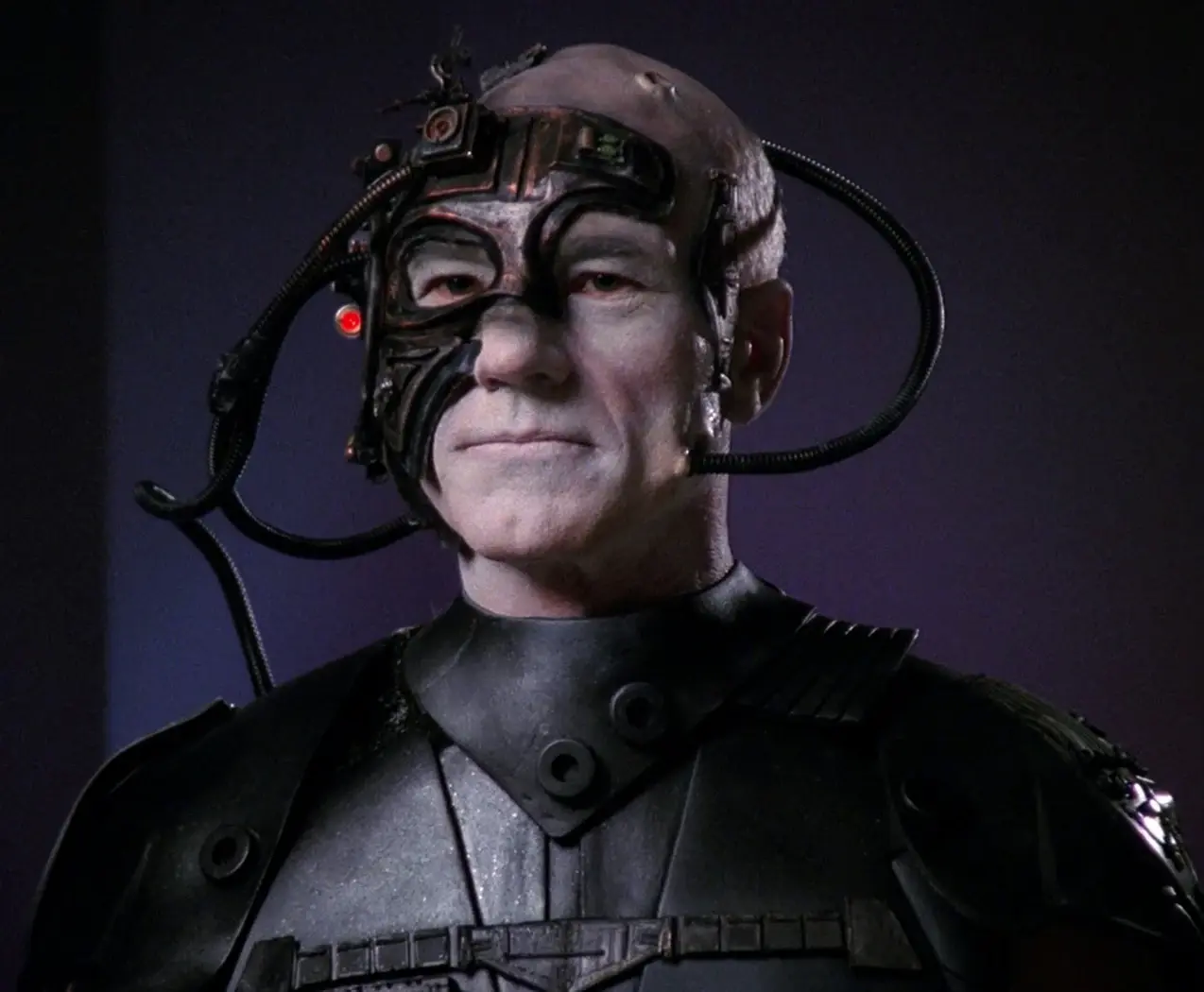The Starship of Theseus?
I kept trying to find a Theseus joke, thanks.

At the very least, he was already cybernetic, what with his heart and all.
No. At that point he would be Locutus.

Was there ever such a thing as the “real Picard” to begin with? Or is the continuity of identity just a lie we tell ourselves to keep from going mad?
This is the transporter dilemma, too. Disintegrating people kills them. Making a long range replicator spit out an exact duplicate with all their memories doesn’t mean they’ve moved.
You are now are not the same as 1 second ago. Does it mean that you-1-sec-ago died?
Your body replaces all of your cells over the course of 7 to 10 years. So every 7 or so years, you are literally no longer the same person that you were. What’s the difference between that and expediting the process with a transporter?
This is not true. 7 years is the average, but some cells are with you for life. Others a few months. When you die, you’ve likely only replaced about 40% of the cells in your heart, the rest have been with you since birth. Same for many regions of the brain.
Brain cells included?
It appears we are more malleable than previously assumed.
Not true. The neurons of your central nervous system for example become fully differentiated during embryonic development, and then lose the ability to mitotically divide, which means that they stay for life. All your brain is doing after that is making synaptic connections between neurons.
Oh boy, philosophers have been salivating over that question for millenia, and they’ve come up with some terrible answers lol
No because you didn’t disintegrate my brain. Being disintegrated is a catastrophic, fatal injury that destroys the body, not just an imperceptible change like naturally ageing by one second.
There is exactly the same imperceivable change for you when you appear on another side. And you-one-sec-ago do not exist anymore in both cases. What’s the difference? Just because you use the word “disintegrated”? Use the word transformed instead.
The end result is an identical entity, certainly. But in-between, your matter is broken apart, converted into energy, reconverted back into matter before it becomes the same again. Becoming a data-stream, or a jumble of particles is a very different thing than being a corporeal biological being, and that’s the state the concerns me.
What does it mean exactly “matter is broken apart”? There are excitations of the quantum fields (electron-positron field, photon field, etc…) that normally evolve according to some time dependent Hamiltonian from one moment to another and constitutes “you”. This Hamiltonian depends on “external world” or on other excitations of the same fields, that are not “you” (e.g. external light waves, gravity, excitations corresponding to something outside of your body). During transportation, the Hamiltonian is just such that that the excitations are transferred from one particular place, to another place (in some coordinate system) while preserving information. If you were not transported, then excitations would be normally transferred to just different distance (in the same coordinate system). As long as quantum information is mostly preserved by the Hamiltonian, then both the transportation and some other evolution that usually called “normal”, preserves the person with his self-identety and memory. But fundamentally I see no fundamental difference between those two Hamiltonians acting on quantum fields according to Schrödinger equation while preserving most of the quantum information over time.
My son and I talked at length about this one, and we agree with Bones. You wouldn’t get me to go through a transporter unless I was already going to die. If there’s any sort of afterlife, or soul, then that’s where the people who have been transported are, and everyone else is a facsimile of themselves.
Humanity has a complicated relationship with organized religion.
As long as he still has original thought. Considering our bodies are pure mechanical, original thought is all there is distinguishing us as not artificial. At least that’s what we’re programmed to think.
deleted by creator
“Neither are the true Picard. Both are the true Picard.”
Both are the ship. Neither are the ship.
deleted by creator










